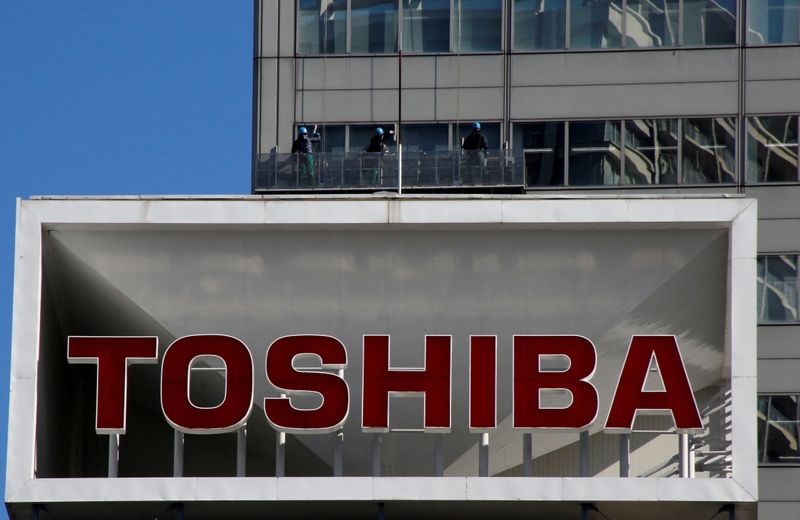By Makiko Yamazaki and Noriyuki Hirata
TOKYO (Reuters) - Yasuo Takeuchi remembers the horror he felt in 2017 when, as chief financial officer of Japan's Olympus Corp, he was told an activist investor had taken a stake in the company: the barbarians were at the gate.
But as he listened to proposals from ValueAct Capital, Takeuchi began to see the San Francisco-based fund as a potential catalyst for change at Olympus, which was still reeling from an accounting scandal and, he believed, remained too domestic in its outlook.
Fast forward to 2021, a leaner Olympus is on track to double its operating profit margin to 20% by the next financial year.
Olympus is a notable example of how attitudes at some Japanese companies have quietly changed in recent years. The government's recent push for better governance has brought in a wave of seasoned global activists, such as Elliott Management and Third Point (NYSE:SPNT), to Japan; the number of activist funds operating in the country has also more than doubled in three years.
In 2019, Olympus brought a ValueAct partner, Robert Hale, onto its board. ValueAct owned more than 5% of Olympus, the fund's first investment in Japan, before selling some of that late last year.
"I was ready to turn all of our business as usual upside down," Takeuchi, now CEO, said of the time he brought Hale on board.
"Rob really watches the company closely and analyses it. He has often given us some great insight in how to execute," he told Reuters in an interview.
Olympus has since overhauled the traditional seniority-based pay and brought in more overseas executives to make management more global. Takeuchi credits ValueAct with helping him "think deeper" about governance, leading to the creation of nominating, audit and compensation committees.
Efforts to become a global medical-technology firm have accelerated. Olympus has bought several overseas medical-equipment firms and sold its digital camera business that had been a long-time money-loser.
Takeuchi said Hale never told Olympus to sell the camera business, only that he "pointed out issues, like other external directors".
Hale has also helped Olympus communicate its changes to the market, so as to have a greater impact, Takeuchi said.
Investors appear to be taking note. The company's shares have nearly trebled since early 2019, versus about a 30% gain in the TOPIX index.
ValueAct declined to comment on the story.
'MORE CONVINCING'
Investors, particularly foreign ones, have long argued that many Japanese companies are unresponsive to shareholders and need to improve governance. Issues around governance and management have come under the spotlight in accounting and other scandals at Toshiba (OTC:TOSYY) Corp, Olympus and elsewhere.
Olympus' plan to boost efficiency "became more convincing around the time it decided to invite ValueAct to its board," said Takashi Akahane, senior analyst at Tokai Tokyo Research Center.
Japanese chip and display materials maker JSR Corp, which is more than 7% owned by ValueAct, is also inviting Hale onto its board.
The company hopes the American's knowledge and expertise will boost its corporate value, said Director Hideki Miyazaki. It wants to speed up decision making and become more global, Miyazaki said.
Joe Bauernfreund, chief executive of London-based Asset Value Investors (AVI), says he sees clear changes at Japanese companies.
As a foreign investor focusing largely on smaller companies, his fund rarely got to meet directors of companies a few years ago, he said. "I think there definitely is a willingness on the part of companies now to work in a more constructive manner with so-called activists."
Activists themselves are also taking a different tack, moving away from hostile takeover threats seen decades ago to a focus on governance and long-term corporate value. That approach, experts say, is likely to have more success - and gain more support from conventional institutional investors.
Last month, a motion by Singapore-based activist investor Effissimo Capital Management in Toshiba Corp won approval at a shareholder vote, the first time at such a high profile company in Japan.
Still, experts note it is too early to say shareholder activism has taken full root in Japan.
Sony (NYSE:SONY) Group's rejection of Third Point's proposal to spin off its chip unit is a prominent recent example, and despite Effissimo's success at Toshiba's vote the firm's management is yet to fully embrace the activist investor.

"Companies like Olympus are a few exceptions, with most firms hoping to stay away from activists," Kazunori Suzuki, professor at Waseda Business School, said. "But if those early examples prove successful and receive public acclaim, others may follow suit."